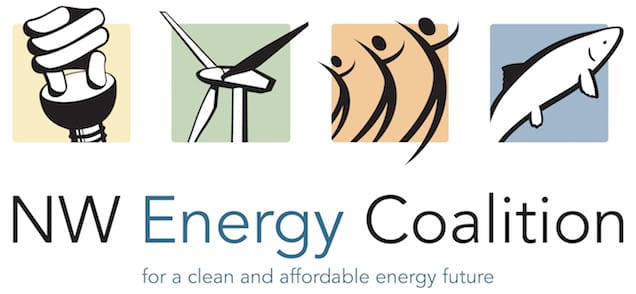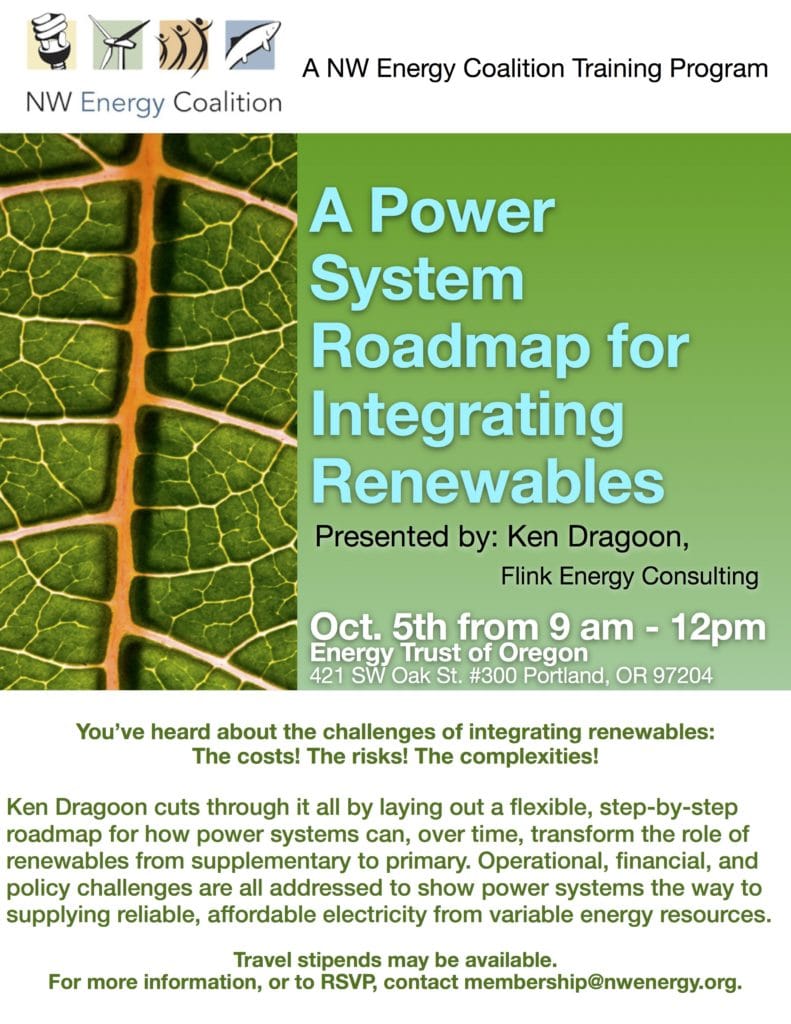Topics
Oregon can become a leader in energy efficient building
In Oregon, House Bill 2710 will help the state reform building codes in ways that: Reduce energy bills for owners and renters Make the air cleaner and temperatures more comfortable in homes…
Oppose Tacoma Power's request to double its customer service charge
Tacoma Power says the proposed increase is the best solution for low income customers. It’s not. On Tuesday, March 7, Tacoma City Council will consider a request from the public…
NW Energy Coalition supports Clean Energy First Act in Olympia
At a moment when it’s imperative that states take the lead in fighting climate change and promoting clean air and water, the NW Energy Coalition is joining five other groups in proposing the Clean Energy First Act (HB1334) in the Washington state legislature.
NWEC releases new Lower Snake River Dam fact sheet
As the Bonneville Power Administration and other federal agencies convene a hearing process concerning the fate of the lower Snake River dams and ongoing efforts to save threatened wild salmon populations, the NW Energy Coalition has released a new fact sheet that describes an affordable clean energy alternative to the dams. The fact sheet also outlines the steps that BPA and the federal agencies should take to assure that the process of creating a new environmental impact statement is thorough, fair and transparent.
Remarks of Nancy Hirsh Executive Director, NW Energy Coalition Lower Snake River Dam Rally December 1, 2016
“All of us who live in the Northwest are being threatened. We’re being told that, if we remove the lower Snake River dams to restore wild salmon, we’ll have to build natural gas-fired power plants that will spew carbon dioxide into the atmosphere and drive up electric rates. In short, we’re being told, we can save wild salmon or we can have clean, abundant, affordable electricity, but we can’t have both.”
NWEC Executive Director to speak at Save the Salmon Rally.
NWEC Executive Director Nancy Hirsh will speak this afternoon at 4PM at a rally to call on the Bonneville Power Administration and other federal agencies to conduct a thorough and fair investigation to determine whether the electricity generated by the lower Snake River dams that inhibit salmon migration can be replaced by other clean, renewable power options.
PRESS RELEASE: NW Energy Coalition participates in a $2 million grant from U.S. Department of Energy
Solar Plus, a joint effort of more than a dozen stakeholder groups in Washington and Oregon, led by Northwest Sustainable Energy for Economic Development (Northwest SEED), and including the NW Energy Coalition, has been awarded a $2,050,000 SunShot grant from the U.S. Department of Energy (DOE) to further the deployment of solar energy in the Pacific Northwest. It is the largest of the seventeen awards totaling $21 million announced today.
Roadmap for Integrating Renewables: Fundamentals for Power Systems Relying Primarily on Renewable Energy
In an October 5, 2016 workshop attended by utility executives, regulators, educators, and clean-energy advocates, Ken Dragoon of Flink Energy, takes his audience through the basics of electricity generation, storage,…
Transportation Electrification in the Northwest
Early in the 20th century, petroleum became the dominant fuel for cars, buses, trucks, vans, marine vessels and railroads. While natural gas plays a role in the commercial fleets, electricity and other renewable fuels are poised for expansion of use in transportation, thereby linking more closely the transportation and utility sectors. It’s a transition from which the Northwest, which is blessed with low-emission electricity, is uniquely positioned to benefit.
“Charge Without a Cause” : The new fee electric utilities want to impose on residential customers
Residential demand charges are popping up with increasing frequency in utility rate design proposals. They’ve even become the topic of an annual summit for utility executives and regulators. But, for ratepayers, demand charges offer few if any offsetting benefits and, worse, they don’t solve the problem they’re supposed to address.











